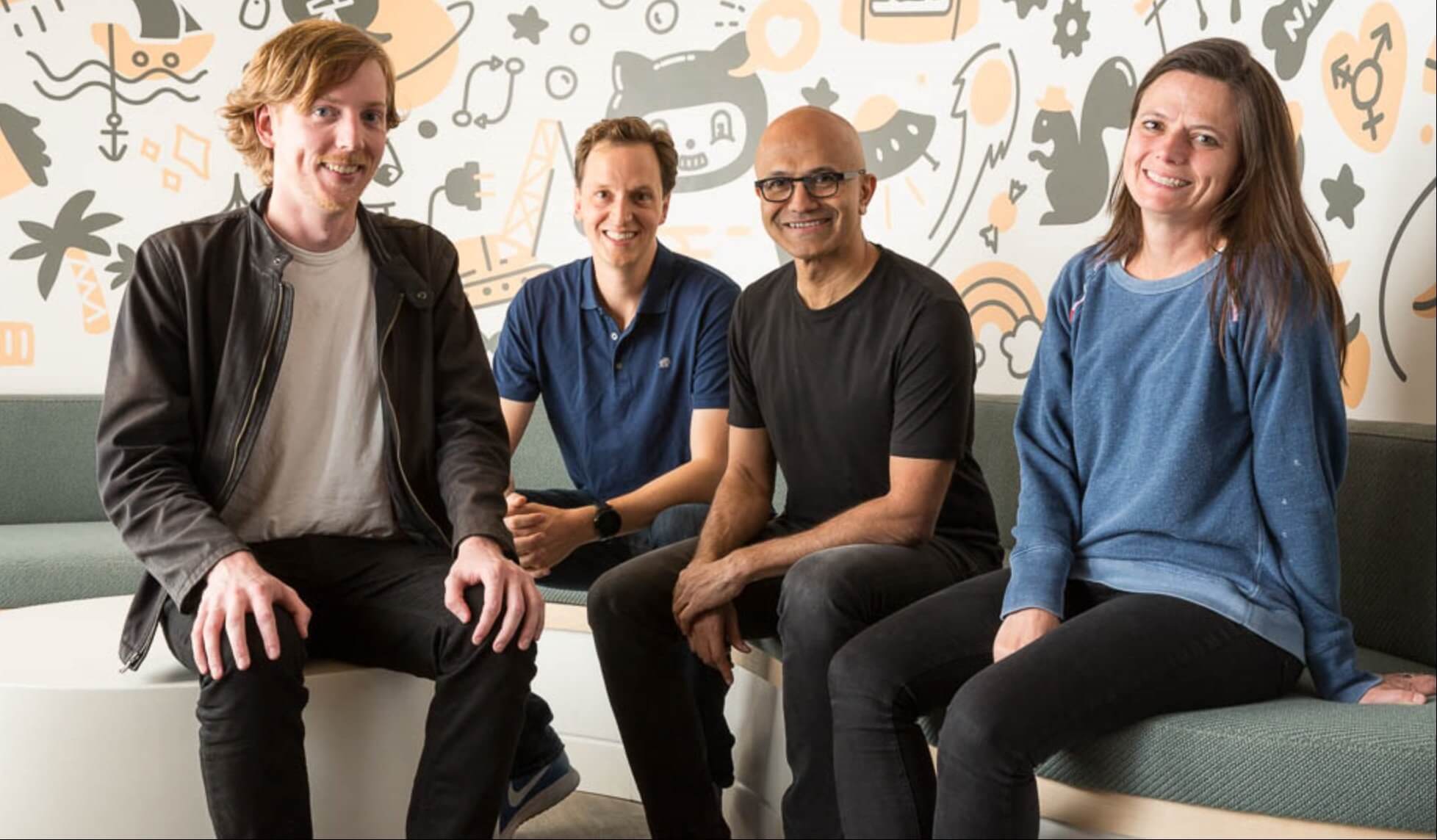The big question: Now that Microsoft owns GitHub, what will it do with the platform? Nat Friedman says he does not plan to change anything, but developers are not so sure. $7.5 billion is a lot of money to throw into something and then not try to optimize the investment.
Last week we reported that the EU gave Microsoft the green light to buyout GitHub. Today the Redmond tech giant announced the closing of that deal. Microsoft will pay $7.5 billion in stock for the code sharing company and continue running it as a separate business.
TechCrunch reports the firm has recently been working on building a network of external developers. It is looking to expand its Azure platform to become more competitive with Amazon's AWS and Google Cloud.
Microsoft's Nat Friedman will be taking over as CEO of GitHub. Friedman reiterated in his blog post on Friday that it will be business as usual at GitHub.
When we announced the acquisition in June, I shared two principles for GitHub that are worth repeating:
GitHub will operate independently as a community, platform, and business. This means that GitHub will retain its developer-first values, distinctive spirit, and open extensibility. We will always support developers in their choice of any language, license, tool, platform, or cloud.
GitHub will retain its product philosophy. We love GitHub because of the deep care and thoughtfulness that goes into every facet of the developer's experience. I understand and respect this, and know that we will continue to build tasteful, snappy, polished tools that developers love.
Developers on the platform are not sure what to think of the acquisition just yet. Microsoft does not carry a reputation for embracing open-source software, so many developers are taking a "wait-and-see" attitude regarding the takeover. The Verge notes that others did not want to hang around and have already switched over to rival service GitLab.
This attitude is not surprising considering Redmond's past outward hostility toward Linux in particular and the open-source community in general. Microsoft CEO Steve Ballmer even went as far as saying "Linux is a cancer" back in 2001. Such attitudes are not easily forgotten.
Resentments aside, multibillion-dollar purchases are expected to have multibillion-dollar returns. Some developers worry that Microsoft is going to try to find ways to monetize the platform that will not jive with the core philosophy of the community.
"While I trust that Microsoft plans to take good care of the GitHub product itself, I am worried about what ways they may try to monetize all the data they now have about how developers work and relate to each other, how software projects are built and maintained," said JavaScript author and trainer Kyle Simpson. "Github was a very good steward of this important data, and we trusted them. Maybe too much. But I'm not sure I trust Microsoft on that front."
It is too early to tell if Simpson's fears are founded. Perhaps Microsoft only purchased GitHub to prevent Google, Amazon, or another competitor from picking it up and doesn't care about ROI in this case, but I wouldn't hold my breath on that.
